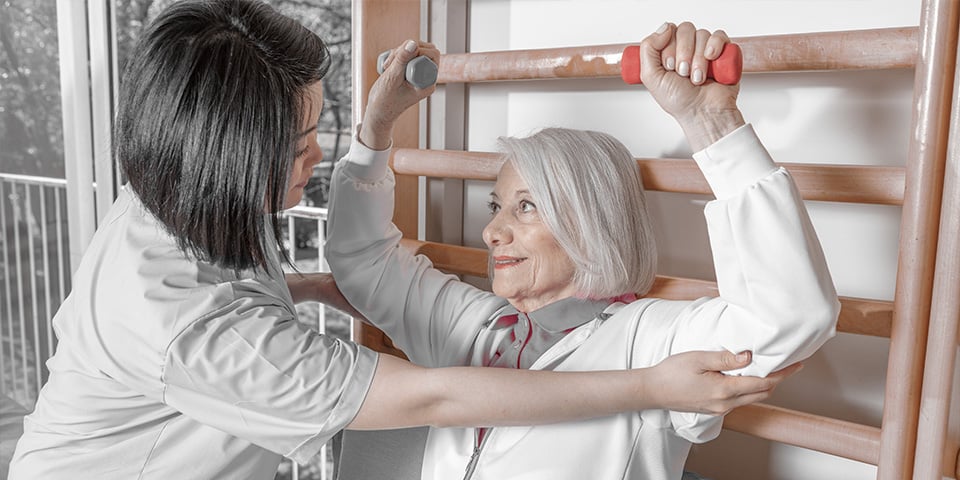As fitness professionals, we have a unique opportunity to influence the health and wellbeing of women navigating the challenging phase of menopause. Understanding the physiological, psychological, and cognitive changes that occur during this period is crucial in providing effective support and guidance. A comprehensive study by Guerrero-González, C., Cueto-Ureña, C., and colleagues offers valuable insights into how physical exercise can mitigate the effects of menopause, including cognitive decline, depression, and the risk of dementia (“Healthy Aging in Menopause: Prevention of Cognitive Decline, Depression, and Dementia through Physical Exercise“, 2024).
The Impact of Menopause on Health
Menopause marks a significant transition in a woman’s life, bringing about various physical and mental health challenges. It signifies the end of reproductive capabilities and is accompanied by a decrease in oestrogen levels, leading to symptoms that can significantly affect quality of life. These include hot flashes, night sweats, mood swings, and increased risk of osteoporosis. Importantly, menopause is also associated with cognitive changes, increased risk of depression, and a higher prevalence of Alzheimer’s disease among women.
Link between Menopause, Cognitive Decline, and Exercise
The onset of menopause has been linked to the onset of cognitive decline, depression, and an increased risk of dementia among other health phenomena. Physical inactivity exacerbates these issues, whereas physical exercise offers numerous mental and physical health benefits, especially for older adults and postmenopausal women. Exercise induces functional and structural variations in the brain, providing significant biological and psychological benefits.
Neuroinflammation and Cognitive Impairment
Neuroinflammation, or CNS inflammation, is closely related to cognitive impairment and aging. The study discusses the pathophysiological substrates of these processes, including the role of neuroinflammation in diseases related to aging such as Alzheimer’s disease. Physical exercise is presented as a preventive intervention that can induce beneficial changes in the brain to counteract these effects.
Depression in Menopause
Depression, particularly prevalent among elderly individuals, is significantly associated with cognitive impairment. The hormonal transitions associated with menopause, including fluctuations in sex hormones like oestrogen, have been implicated in the increased vulnerability to neuroinflammation, depression, and Alzheimer’s Disease (AD) in women.

The Role of Physical Exercise
Physical exercise emerges as a powerful non-pharmacological intervention that can offer substantial benefits during menopause. It not only helps in managing physical symptoms but also plays a critical role in enhancing cognitive function and mood. Regular physical activity can induce structural and functional changes in the brain, which are crucial for maintaining cognitive health and preventing neurodegenerative diseases.
Practical Tips for Fitness Professionals
- Individualised Exercise Programmes: Develop personalised exercise regimens that cater to the unique needs and health status of each client. Consider factors such as existing physical conditions, fitness levels, and personal preferences.
- Incorporate Weight-Bearing and Strength Training: These exercises are essential for bone health and can help combat the risk of osteoporosis, a common concern during menopause.
- Promote Cardiovascular Health: Encourage aerobic activities such as walking, cycling, or swimming to improve heart health and manage weight. Cardiovascular exercise also has mood-enhancing benefits, helping to alleviate symptoms of depression.
- Stress Reduction Techniques: Integrate practices such as yoga or tai chi, which focus on mindfulness and relaxation. These can help manage stress, improve sleep quality, and reduce the severity of menopausal symptoms.
- Education and Support: Educate clients about the benefits of exercise during menopause and provide a supportive environment that encourages regular physical activity. Address any concerns or barriers they may face and work together to overcome them.
- Monitor and Adjust: Regularly assess the effectiveness of the exercise programme and be open to making adjustments based on the client’s feedback and changing needs.
By embracing these strategies, fitness professionals can play a pivotal role in supporting women through menopause, helping them to maintain their physical and mental wellbeing.
Menopause is a period of significant change, but with the right strategies, it’s possible to mitigate its impacts and promote healthy aging. Physical exercise stands out as a key intervention for improving the quality of life during this transition. As fitness professionals, our role in educating and empowering women to incorporate regular physical activity into their routines is more important than ever.
Reference
Guerrero-González, C., Cueto-Ureña, C., et al. (2024). Healthy Aging in Menopause: Prevention of Cognitive Decline, Depression, and Dementia through Physical Exercise. Physiologia, 4(1), 7. Click here to review the full research article
Become a Women’s Health & Exercise Specialist
Embark on a transformative journey with TRAINFITNESS and become a certified Women’s Health & Exercise Specialist. Our soon-to-be-released course is meticulously designed to empower you with comprehensive knowledge and practical skills across a range of critical areas. Dive into the core units of Gym Instruction and Personal Training, and specialise further with Ante & Post Natal Exercise, Outdoor Fitness, T3 HIIT Coach and Circuit Training. Whether you prefer the immersive experience of in-person classes, the convenience of live-virtual sessions via Zoom, or the flexibility of distance study, we’ve tailored our study options to fit your lifestyle. Plus, with a variety of payment plans available, advancing your career and making a meaningful impact on women’s health and fitness has never been more accessible. Coming soon – Watch this space!
